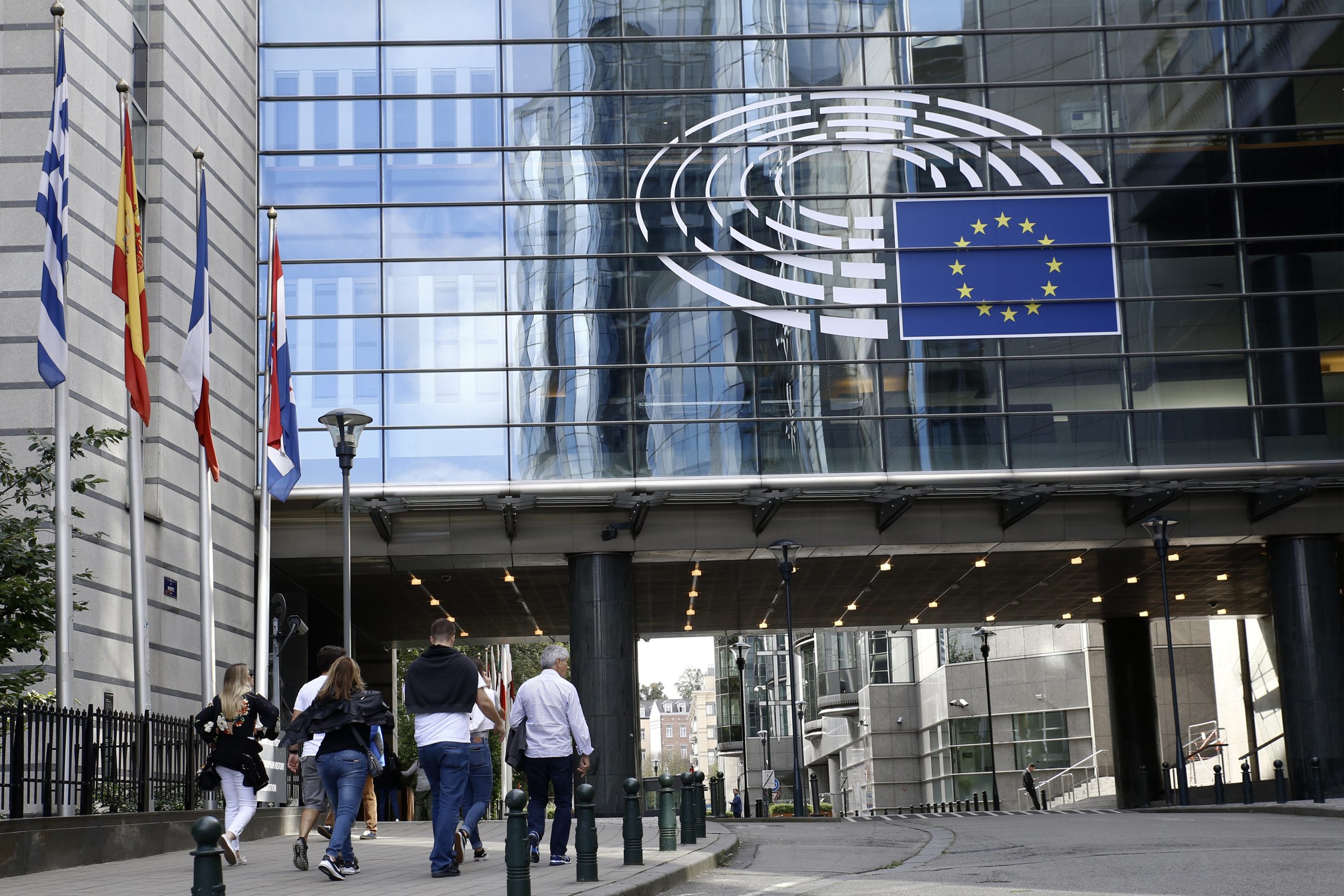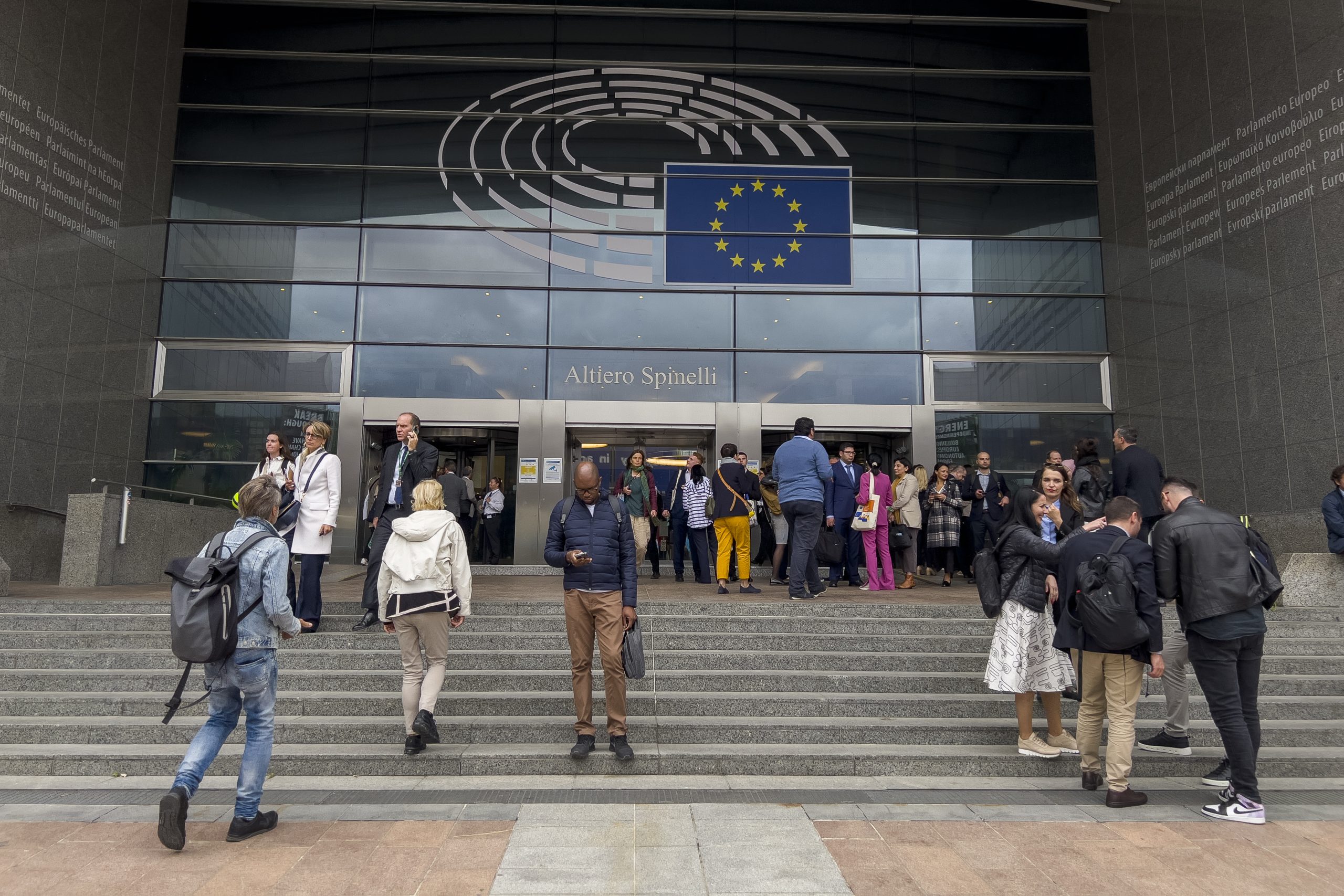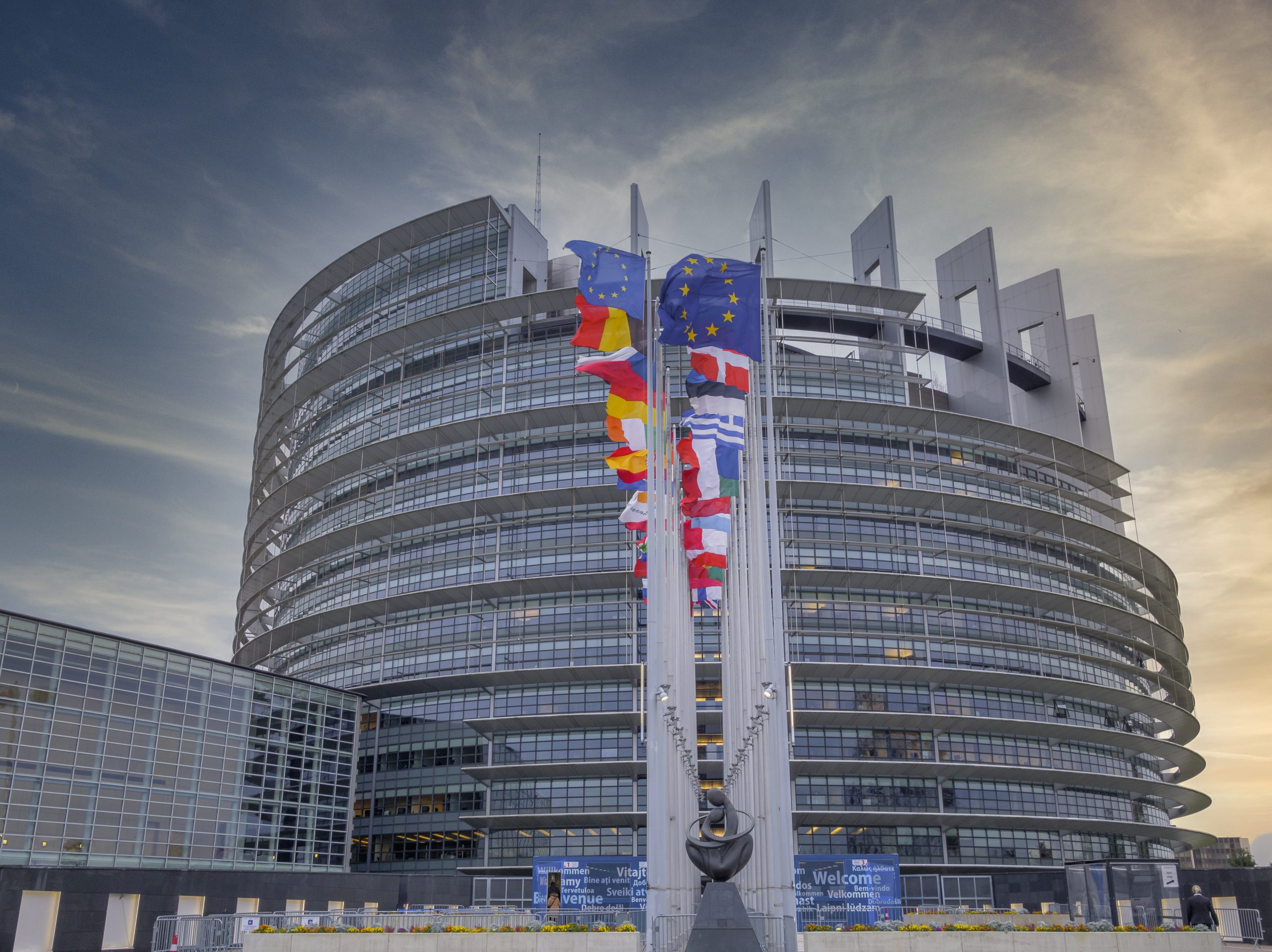Árpád LAPU: Stocktaking of the EP’s Current Legislative Term – One for the Books
Brexit, pandemic, energy crisis, war, Qatargate – the current legislative cycle will no doubt have its own chapter in the history books. With less than one year left of the current mandate of the European Parliament, taking stock of the previous years of EU legislation seems appropriate. By analyzing the legislative work during this mandate, we can try to draw conclusions for the next one as well. Looking back until the beginning of the mandate and analyzing some of the most covered dossiers may reveal interesting correlations. Glimpsing at the last years of the EU we can assume that the Leyen-Commission will leave a lot of work for the following college of commissioners. Not only was the EU hit by new crises during this mandate, but many Commission proposals were mistrusted in the Council. In addition, the current Commission has initiated fewer legislative acts than the average Commission in the last decades (not counting the previous one).
Looking back
In 2019, the European public, as it is usual at the beginning of each term, was engaged in debates about selecting the president and members of the European Commission. However, the process of appointing the new Commission did not go as the major European political parties expected. After a seemingly successful trial during the selection of former Commission president Juncker in 2014, the new President was not a “Spitzenkandidatin”, not someone proposed by one of the European political parties. Ursula von der Leyen took over as president with a slim majority, 383 members of the European Parliament had voted for her, 327 MEPs voted against her, and 22 abstained. The failure of the lead-candidate process has played an important role in the debates surrounding the reform of the European elections and also had significant implications for the legislative agenda of the current term.
Ursula von der Leyen, as president-elect has listed her main political priorities in her opening statement in front of the European Parliament in 2019: “The whole world is being challenged by disruptive developments that have not passed Europe by. Demographic change, globalization of the world economy, rapid digitalization of our working environment and, of course, climate change.”
Little did she know about the events that have trembled the European Union in the following years. Even before those events, she has surprised the Member States and the European institutions as well with her bold proposals (climate neutrality by 2050, a Conference on the Future of Europe, transnational lists, etc.), further detailed in her political guidelines. The bar was set high for the current legislative period by the “Geopolitical Commission”, even without the chain of crises following. The president of the European Commission has outlined 6 priorities for this mandate: a European Green Deal, A Europe Fit for the Digital Age, an Economy that Works for People, a Stronger Europe in the World, Promoting our European Way of Life, and a New Push for European Democracy. Initiatives on the “European Green Deal”, legislation on a European minimum wage, binding pay-transparency measures, and legislation on the human and ethical implications of artificial intelligence were pronounced to be introduced within 100 days of the start of the Commission’s work. The Commission has an important agenda-setting role for the legislative term as the bearer of the general and direct right of initiative in ordinary legislative procedures.
The Leyen-Commission has initiated 150 adopted legislative acts within the framework of the ordinary legislative procedure (COD) and has proposed 124 adopted modifications of secondary legal acts stemming from COD procedures. It is interesting to note that during the 9th (2019-) parliamentary term the Commission has initiated 197 ordinary legislative proposals overall, while during the same amount of time in the sixth term, 321 and 244 during the seventh term. During the current term, there were 482 ordinary legislative initiatives in any form in progress (either initiated in the mandate before or during the current mandate, in progress, rejected, or adopted).
Number of acts and number of legislative acts adopted in ordinary legislative procedure
| All new adopted acts initiated by any institution | Amendments of legal acts adopted, initiated by any institution | Legislative acts adopted, initiated by the EC | Modifications adopted of legislative acts initiated by the EC | |
| 2019 | 502 | 109 | 75 (7 by the Leyen Commission) | 51 (8 by the Leyen Commission) |
| 2020 | 505 | 106 | 31 | 32 |
| 2021 | 554 | 105 | 58 | 29 |
| 2022 | 515 | 99 | 36 | 37 |
| 2023 January-June | 161 | 51 | 18 | 18 |
Source: EUR-Lex
The pandemic has severely affected all EU institutions, but they have adapted to digital working methods. Regarding the votes of the European Parliament, a serious legal concern emerged, as the Rules of Procedure of the European Parliament had not allowed digital voting methods when the pandemic has tackled the EU institutions. For lack of a better option, Parliament has applied digital voting procedures ‘contra legem’ between March 2020 and December 2020, raising concerns about the invalidity of all legal acts adopted during this time. In the end, the EP has adopted a modification of the Rules of Procedure in December 2020, which has made digital voting possible in the future, but the question of validity of legal acts adopted between the outbreak of COVID-19 and the adoption of the modification to the Rules of Procedure was never solved in a comforting matter.
There have been 112 legislative initiatives in ordinary legislative procedures mentioning COVID and 19 special legislative procedures, about one-third of these were directly related to the pandemic. Arguably, the most emblematic decisions were the NextGenerationEU and its Recovery and Resilience Facility, the EU Digital Covid Certificate (or digital green certificate), and the vaccine procurement procedure. They have faced considerable criticism since their adoption. The vaccine procurement procedure was slow compared to other parts of the world and some member states, the payment of the €700 billion for the recovery of the EU and its Member States still has not been made to all Member States even though most have already forgotten about the pandemic. In response to the ineffective reaction to the pandemic, the Commission has initiated repealing Decision No. 1082/2013/EU of the European Parliament and of the Council of 22 October 2013 on serious cross-border threats to health. The aim was to “better anticipate and respond to serious cross-border health threats”, applying surveillance of diseases, drafting an EU prevention, preparedness and response plan, and allowing the Commission to recognize public health emergencies at an EU level.
The legislation connected to the armed conflict in Ukraine were also highly covered during the mandate (ammunition production; wheat, maize, rapeseed and sunflower seed trade; European Peace Facility, restrictive measures, etc.). These legislative initiatives were high priority for the EU institutions and sometimes highly debated. They are still in progress and need ex post assessment in the future.
One of the most covered legislative priorities was the so-called European Green Deal. The “European Climate Law” adopted on the 4th of March 2020 (within 100 days of the start of the work of the Commission) has set a binding climate-neutrality target for 2050. The target of at least a 55% reduction in greenhouse gas emissions by 2030 was adopted by the European Council. The Commission presented on 14 July 2021 the Fit for 55 package, a package of 13 legislative proposals to align EU energy and climate legislation to reach the goal. As part of the package, an amendment of Regulation (EU) 2019/631 was proposed. By 2035, all new passenger cars’ and vans’ CO2 emissions would have to be reduced by 100%, meaning all new vehicles would have zero emission. The topic was surrounded by a fierce debate in both the Council and in the Parliament, along with the dilemma of what is the price Europe should pay for reaching climate targets in terms of increasing the unemployment rate and decreasing competitiveness on a global scale. In the end, due to the German position breaking unanimity, the proposal was extended by allowing so-called e-fuels with some limitations.
In the field of energy policy, the proposal of the energy taxation directive, proposed in 2021 aimed to align the taxation of energy products with EU climate policies, has not been adopted and is awaiting further steps in Council. Energy policy has become an even more sensitive field due to the energy crisis and the directive would strive to phase out exemptions, would tax fuels according to their energy content and environmental performance. The proposal would require unanimity in the Council, leaving the initiative and the Commission in a predicament.
The mobility package was one of the legislations that has started in the previous term and has gained considerable attention, in spite transport regulations not being usual guests on the first pages of newspapers. The legislative proposal was published in May 2017 and it has been adopted after lengthy negotiations in July 2020, amending Regulation (EU) 165/2014 and Regulation (EU) No 561/2006. The goal of the package of the proposal was to lay down minimum requirements on maximum daily and weekly driving times, breaks, rest periods of drivers and rules regarding tachographs and thus adapt social rules in the EU in the field of road transport. The regulation tried to identify and clear up rules and unify interpretation. During the heated debate, some countries and MEPs were debating against the mobility-reform trying to protect the competitiveness of their transport-sector, viewing the reform as discriminatory, disturbing competition unfavorably for Central-, Eastern-, Southern Europe and introducing disproportionate administrative burdens for European companies and violating the free movement of workers.
Looking around
There is legislation currently in progress. “A Europe fit for a digital age” as a legislative priority includes the new AI regulation currently in progress. The “Artificial Intelligence Act” was proposed later than promised in 2019. Still, it is the first ever attempt for a horizontal AI regulation, focusing on the utilization of AI systems and associated risks. The risk-based approach of the initiative means that some AI systems will be prohibited as they pose unacceptable risk, high-risk AI systems would be authorized with a set of obligations and requirements for accessing the single market, the ones with limited risk would be subject to lighter obligations. The emergence of AI chatbots have definitely sped up the legislation process of this file, but the actual application of the directive will take years yet (if adopted).
The Leyen Commission has introduced in 2019 the “one in, one out” principle, to strive to ease the burden of companies and citizens with each new legislation imposing obligations on them. There were proposals introducing new burdens for businesses indeed, like the due diligence legislation, from the priority “An economy that works for people”, but there were no communication regarding parallel deregulation. The Commission has announced its intention to propose a legislation on corporate sustainability in its 2021 working programme. After some delay, the Commission has introduced the proposal for a directive on Corporate Sustainability Due Diligence in February 2022. According to the text, companies with more than 500 employees of 250 for textiles, agriculture and mineral sectors and a yearly turnover of more than 150 million, or 40 million are obliged to conduct certain steps to adhere human rights and environmental obligations. The addressed companies have to identify actual or potential adverse impacts and mitigate or end them, need to monitor the effectiveness of compliance with the directive, establish a complaint procedure for affected persons and trade unions. Member states need to establish sanctions for non-compliance and are liable for damages if the companies fail to comply. The European Parliament has adopted its positions in June, the legislative procedure is in progress, however, the debates were exciting, and critics argued that it is an unnecessary burden for companies in a challenging time when Europe should improve its competitiveness, while the supporters argued for the importance of countering human rights and environmental protection violations.
The most recent Conference on the Future of Europe took place during this legislative term as well and the European Parliament has arguably initiated the ordinary revision procedure of the EU Treaties in accordance with Article 48 TEU. Furthermore, the Commission has proposed numerous legislations trying to reinforce democracy in the EU by imposing obligations on the Member States. These are definitely important developments. Be that as it may, due to their complexity, the analysis of these novelties will have to be done in further articles.
Looking forward
As we can see from these samples, many things have happened in the current legislative term. There are still 102 pieces of legislation to be adopted until the end of the legislative term, among them the above-mentioned due diligence directive and the “AI act”. Not all legislative goals will be adopted, naturally. The question raised now is which dossiers will be “handed over” to the next Commission, Council and Parliament.
There are numerous articles on the topic of the relationship between crises and the European integration. Some claim that crises are the incentives that help the EU integration to strive forward, while others claim that the Union needs to change, as it is ineffective in dealing with challenges. Most college of commissioners could be described as crises-management teams, but looking back from where we stand, the Leyen-Commission (2019-) is definitely the top one being forced into the role of “firemen” by the externalities that shocked the European Union in the last months and decades. These externalities have turned the legislative agenda upside down as well. There were legislative goals that had to change (MFF), goals that were not met (deregulation, taxation initiatives) and also legislations that were faced with a considerable amount of criticism (due diligence, mobility package) and unexpected ones (COVID and Ukraine-related legislation). Even though other Commissions have faced many obstacles as well, the idea of the “Geopolitical Commission” has led the European Union to try to step up and solve the new challenges, however, only with partial success. Meanwhile, the Leyen-Commission has put great emphasis on trying to influence processes in the Member States, sometimes leading to constitutional issues.
The end of the mandate is approaching swiftly, but still, there are many legislative files left to adopt. The Leyen-Commission will no doubt give a lot of work to the next college of Commissioners. Some of the legislative acts under the European Green Deal, the budgetary and rule of law stalemates, due diligence and human rights obligations, the AI Act, institutional reforms (initiated by the EP) and measures argued as strengthening democracy are all significant and far-reaching proposals necessitating long negotiations, if even adopted. During the next cycle, many proposals will be continued to be debated, some of them will fail and some of them will change significantly content wise. The question is, how much of the current legislative priorities and political goals will the next European Commission keep and hold for significant? How much will be changed drastically?
All in all, many interesting legislations were initiated, and important debates were organized during this mandate. We will see how the future work will continue and if this legislative cycle will make it into the history books – but more likely due to the numerous crises and less due to the fulfillment of ambitious political goals.
Árpád Lapu is a policy adviser on constitutional issues at the European Parliament since 2019 and a PhD student of the Károli Gáspár University of the Reformed Church in Hungary. Between 2017-2019, he worked as an adviser at the Cabinet of the Minister of Justice of Hungary, conducting comparative constitutional analyses. He has earned his JD at the Pázmány Péter Catholic University in Hungary, has a BA in international relations from the University of Szeged and an MA in European and international administration from Andrássy Gyula German Speaking University in Budapest. He has completed an Edx MicroMaster in cooperation with the Catholic University of Louvain (UCLouvain) in international law. His field of research is non-participation in armed conflicts in international law and constitutional norms regarding non-participation in armed conflicts. He has written publications regarding the future of the EU ETS system of the European Union, institutional reform proposals of the Union, and researches in the field of social sciences.








